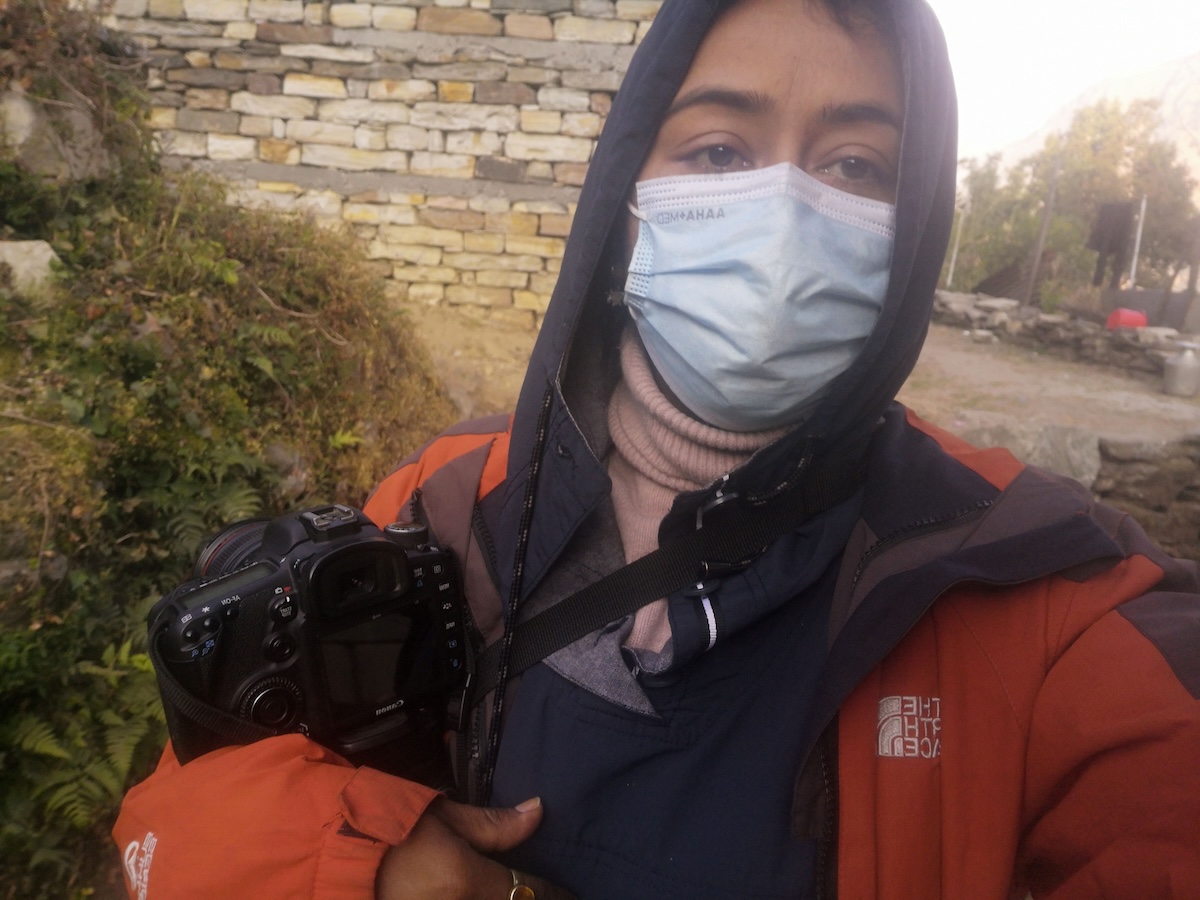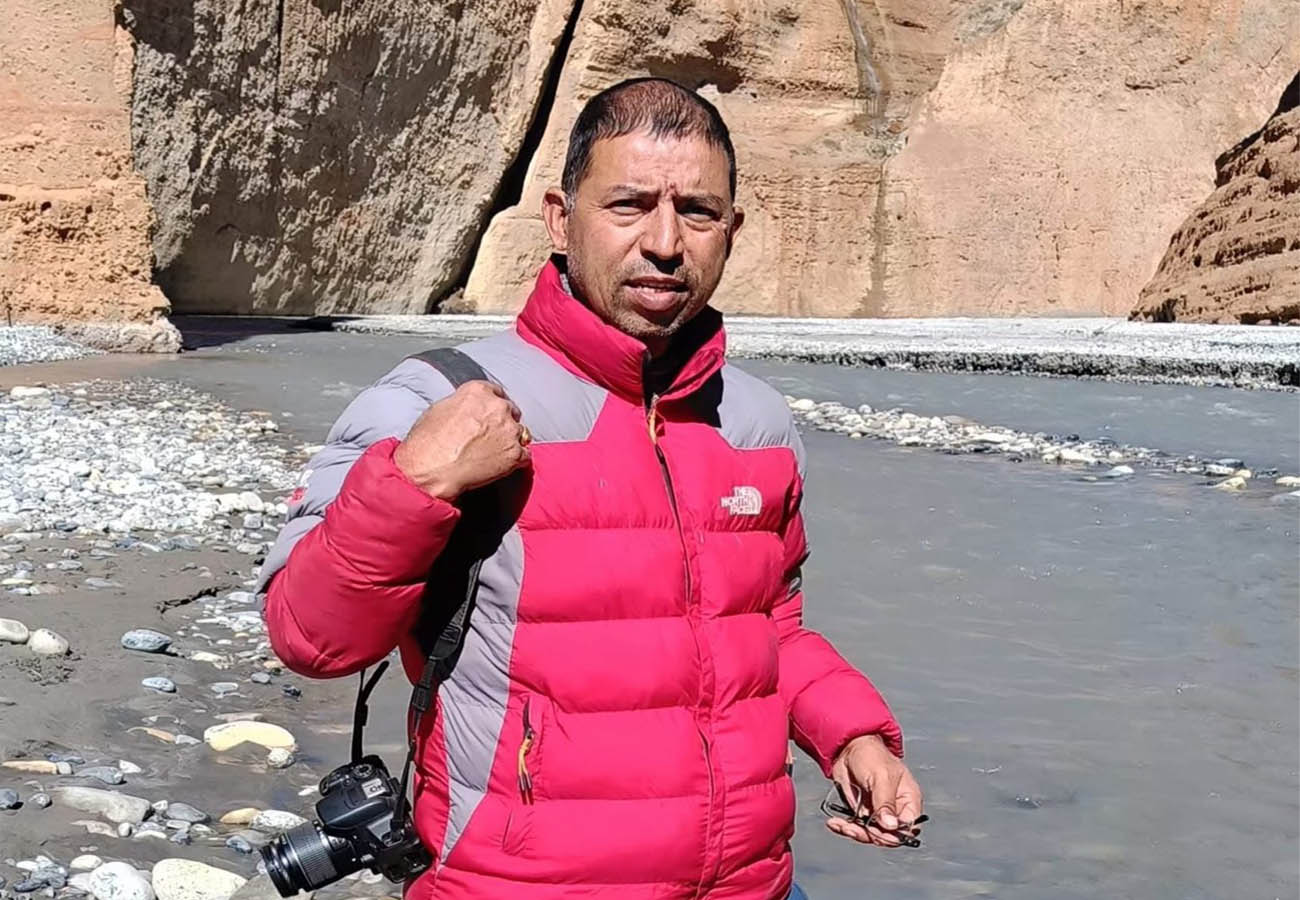We sat down with our Investigative Documentary Fellow, Devaki Bist, and talked about her recently published stories- 'Santa's Unfulfilled Dream' and 'When the Vehicle Carrying the Dead Body Stopped in the Middle...'
In this corner, Devaki shares her experience while working on these stories and how her visual medium of reporting has shaped her as a journalist in navigating the ethical and humane aspects that can come up in the course of reporting.
Devaki Bist during field reporting
First things first, how did this story and documentary come to be?
A journalist is always hungry for stories, which is probably why I have visited almost 75 out of 77 districts in Nepal, searching for the next one. I had always wanted to do a visual story based on real incidents of foreign employment. I listened to my inner voice and decided to pitch this story to NIMJN.
Luckily, my pitch got approved and I got to pursue this as a part of the NIMJN fellowship. I put an enormous amount of effort for this story. I found out about Santa Bahadur’s body being brought to Nepal. I made all the necessary preparations and did a quick risk assessment with my editor. Then I set out to follow Santa’s body and traveled to his village in Dharche.
Speaking of the second story, you also reported on the Foreign Employment Board’s arrangement for vehicles to take the dead body home. The board claims that four-wheel vehicles are used in transporting the body, but the information we got using the Right to Information did not find any four-wheel vehicles in use. How did you originally come up with the idea for this investigation?
The story idea came when I witnessed how Santa Bahadur’s body was transported to Dharche. Once the difficult hilly roads started, the driver said he would not go further. And this kept happening. When we stopped to eat, I told him that a four-wheeler like this vehicle could easily navigate such difficult terrains. That is when the driver mentioned that the vehicle we were on was a two-wheeler. I felt like this issue was a story.
Has there been an update on the use of two-wheelers?
I was in contact regarding the issue in this story with the Deputy Secretary and Information Officer at the Ministry of Labour, Employment, and Social Security, Mr. Krishna Prasad Bhusal. He said the Foreign Employment Board takes responsibility for managing this.
We also did a follow-up interview with Dr. Dwarika Upreti, Executive Director of the Foreign Employment Board. He mainly said that he was not aware of such issues occurring until now.
You were one of the first people who arrived at the village along with Santa Bahadur’s body, so you must have witnessed his entire family and the village in mourning. How was that experience for you as a reporter?
As a reporter, we cover sensitive stories. In this story, there were many moments where the family members of the deceased were crying. It was an emotional and difficult situation. But I was there to cover the story, so I had to shoot those moments without shedding tears.
Your documentary includes a byte from Santa’s wife. What was it like to approach her to sit down for an interview on camera?
It was incredibly difficult. In between the video shoots, I used to apologize to the family members as well as the locals. The least I could do was to give them enough time and privacy. So I never tried to get them to talk forcefully. Santa’s wife was one of the main characters in my documentary, but she was undergoing their death rituals at the time. She had also been unconscious for almost three days after getting the news of her husband’s death.
So all I could do was wait and explain when she was ready.
How do you think journalists can better incorporate ethical reporting and empathy into our daily reporting practices?
We have to analyze everything on a case-by-case basis and respond according to the situation. In my story, for example, the issue was quite sensitive and I had to follow the deceased and his relatives from the airport to their village. I was going there for reporting at such a time and I was fully aware that I had to respect their boundaries. As a journalist, we need to report with empathy in such situations.

Devaki Bist while field reporting in Dharche village
Read Devaki’s latest stories, 'Santa's Unfulfilled Dream' and 'When the Vehicle Carrying the Dead Body Stopped in the Middle...'



